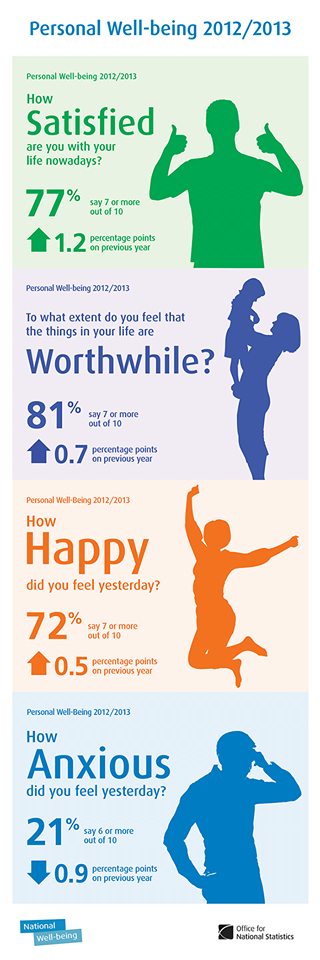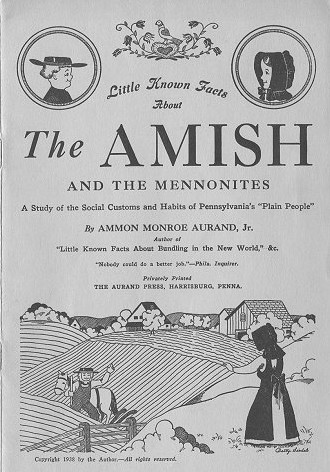|
Robert Biswas-Diener
Robert Biswas-Diener (born July 27, 1972) is a positive psychologist, author and instructor at Portland State University. Biswas-Diener's mother is Carol Diener and his father is Ed Diener, both psychologists. Biswas-Diener's research focuses on income and happiness, culture and happiness, and positive psychology. Biswas-Diener's research has led him to areas such as India, Greenland, Israel, Kenya, and Spain, and he has been called the "Indiana Jones of positive psychology". He obtained his PhD in 2009 on "Material wealth and subjective well-being" from the University of Tromsø. Biswas-Diener is interested in looking into the difference between a procrastinator and what he calls an "incubator". Biswas-Diener is an author of books and articles and sits on the editorial boards of the ''Journal of Happiness Studies'' and ''Journal of Positive Psychology''. Biswas-Diener also co-founded The Strengths Project, a charity whose mission is to "help underprivileged individuals and grou ... [...More Info...] [...Related Items...] OR: [Wikipedia] [Google] [Baidu] |
Positive Psychology
Positive psychology is the scientific study of what makes life most worth living, focusing on both individual and societal well-being. It studies "positive subjective experience, positive individual traits, and positive institutions...it aims to improve quality of life." It is a field of study that has been growing steadily throughout the years as individuals and researchers look for common ground on better well-being. Positive psychology began as a new domain of psychology in 1998 when Martin Seligman chose it as the theme for his term as president of the American Psychological Association. It is a reaction against past practices, which have tended to focus on mental illness and emphasized maladaptive behavior and negative thinking. It builds on the humanistic movement by Abraham Maslow, Rollo May, James Bugental, and Carl Rogers, which encourages an emphasis on happiness, well-being, and positivity, thus creating the foundation for what is now known as positive psychology. P ... [...More Info...] [...Related Items...] OR: [Wikipedia] [Google] [Baidu] |
Subjective Well-being
Subjective well-being (SWB) is a self-reported measure of well-being, typically obtained by questionnaire. Ed Diener developed a tripartite model of subjective well-being in 1984, which describes how people experience the quality of their lives and includes both emotional reactions and cognitive judgments. It posits "three distinct but often related components of wellbeing: frequent positive affect, infrequent negative affect, and cognitive evaluations such as life satisfaction." Subjective well-being is an overarching ideology that encompasses such things as "high levels of pleasant emotions and moods, low levels of negative emotions and moods, and high life-satisfaction." SWB therefore encompasses moods and emotions as well as evaluations of one's satisfaction with general and specific areas of one's life. SWB is one definition of happiness. Although SWB tends to be stable over the time and is strongly related to personality traits, the emotional component of SWB can be i ... [...More Info...] [...Related Items...] OR: [Wikipedia] [Google] [Baidu] |
Living People
Related categories * :Year of birth missing (living people) / :Year of birth unknown * :Date of birth missing (living people) / :Date of birth unknown * :Place of birth missing (living people) / :Place of birth unknown * :Year of death missing / :Year of death unknown * :Date of death missing / :Date of death unknown * :Place of death missing / :Place of death unknown * :Missing middle or first names See also * :Dead people * :Template:L, which generates this category or death years, and birth year and sort keys. : {{DEFAULTSORT:Living people 21st-century people People by status ... [...More Info...] [...Related Items...] OR: [Wikipedia] [Google] [Baidu] |
1972 Births
Within the context of Coordinated Universal Time (UTC) it was the longest year ever, as two leap seconds were added during this 366-day year, an event which has not since been repeated. (If its start and end are defined using mean solar time he legal time scale its duration was 31622401.141 seconds of Terrestrial Time (or Ephemeris Time), which is slightly shorter than 1908). Events January * January 1 – Kurt Waldheim becomes Secretary-General of the United Nations. * January 4 - The first scientific hand-held calculator (HP-35) is introduced (price $395). * January 7 – Iberia Airlines Flight 602 crashes into a 462-meter peak on the island of Ibiza; 104 are killed. * January 9 – The RMS ''Queen Elizabeth'' is destroyed by fire in Hong Kong harbor. * January 10 – Independence leader Sheikh Mujibur Rahman returns to Bangladesh after spending over nine months in prison in Pakistan. * January 11 – Sheikh Mujibur Rahman declares a new constitutional governme ... [...More Info...] [...Related Items...] OR: [Wikipedia] [Google] [Baidu] |
Journal Of Positive Psychology
''The Journal of Positive Psychology'' is a bimonthly peer-reviewed academic journal covering positive psychology, including measures of well-being such as life satisfaction, traits such as optimism, work life consequences of resilience, and methods to enhance positive psychological traits. It was established in 2006 and is published by Routledge. The editor-in-chief is Robert A. Emmons (University of California, Davis). Abstracting and indexing The journal is abstracted and indexed in CINAHL, Current Contents/Social & Behavioral Sciences, PsycINFO, Scopus, and the Social Sciences Citation Index. According to the ''Journal Citation Reports'', the journal has a 2020 impact factor The impact factor (IF) or journal impact factor (JIF) of an academic journal is a scientometric index calculated by Clarivate that reflects the yearly mean number of citations of articles published in the last two years in a given journal, as i ... of 4.197. References External links * ... [...More Info...] [...Related Items...] OR: [Wikipedia] [Google] [Baidu] |
Diagnostic And Statistical Manual Of Mental Disorders
The ''Diagnostic and Statistical Manual of Mental Disorders'' (DSM; latest edition: DSM-5-TR, published in March 2022) is a publication by the American Psychiatric Association (APA) for the classification of mental disorders using a common language and standard criteria and is the main book for the diagnosis and treatment of mental disorders in the United States and is considered one of the "Bibles" of psychiatry along with the ICD, CCMD and the Psychodynamic Diagnostic Manual. It is usedmainly in the United Statesby researchers, psychiatric drug regulation agencies, health insurance companies, pharmaceutical companies, the legal system, and policymakers. Mental health professionals use the manual to determine and help communicate a patient's diagnosis after an evaluation. Hospitals, clinics, and insurance companies in the United States may require a DSM diagnosis for all patients with mental disorders. Health-care researchers use the DSM to categorize patients for research purp ... [...More Info...] [...Related Items...] OR: [Wikipedia] [Google] [Baidu] |
Maasai People
The Maasai (; sw, Wamasai) are a Nilotic ethnic group inhabiting northern, central and southern Kenya and northern Tanzania. They are among the best-known local populations internationally due to their residence near the many game parks of the African Great Lakes and their distinctive customs and dress.Maasai - Introduction Jens Fincke, 2000–2003 The Maasai speak the Maa language (ɔl Maa), a member of the Nilotic language family that is related to the , |
Amish
The Amish (; pdc, Amisch; german: link=no, Amische), formally the Old Order Amish, are a group of traditionalist Anabaptist Christian church fellowships with Swiss German and Alsatian origins. They are closely related to Mennonite churches, another Anabaptist denomination. The Amish are known for simple living, plain dress, Christian pacifism, and slowness to adopt many conveniences of modern technology, with a view neither to interrupt family time, nor replace face-to-face conversations whenever possible, and a view to maintain self-sufficiency. The Amish value rural life, manual labor, humility and '' Gelassenheit'' (submission to God's will). The history of the Amish church began with a schism in Switzerland within a group of Swiss and Alsatian Mennonite Anabaptists in 1693 led by Jakob Ammann. Those who followed Ammann became known as Amish. In the second half of the 19th century, the Amish divided into Old Order Amish and Amish Mennonites; the latter do not abstain fr ... [...More Info...] [...Related Items...] OR: [Wikipedia] [Google] [Baidu] |
Journal Of Happiness Studies
The ''Journal of Happiness Studies: An Interdisciplinary Forum on Subjective Well-Being'' is a peer-reviewed interdisciplinary scientific journal covering the study of happiness and well-being. It was established in 2000 by founding editors Ed Diener, Alex Michalos, and Ruut Veenhoven. It is published by Springer Science+Business Media, and is affiliated with the International Society for Quality of Life Studies (ISQOLS). The editor-in-chief is Antonella Delle Fave (University of Milan). According to the ''Journal Citation Reports'', the journal has a 2020 impact factor The impact factor (IF) or journal impact factor (JIF) of an academic journal is a scientometric index calculated by Clarivate that reflects the yearly mean number of citations of articles published in the last two years in a given journal, as i ... of 3.852. References External links * Academic journals established in 2000 Positive psychology journals Springer Science+Business Media academic journals E ... [...More Info...] [...Related Items...] OR: [Wikipedia] [Google] [Baidu] |
Ed Diener
Edward Francis Diener (July 25, 1946 – April 27, 2021) was an American psychologist, professor, and author. Diener was a professor of psychology at the University of Utah and the University of Virginia, and Joseph R. Smiley Distinguished Professor Emeritus at the University of Illinois, as well as a senior scientist for the Gallup Organization. He is noted for his research over the past thirty years on happiness, including work on temperament and personality influences on well-being, theories of well-being, income and well-being, cultural influences on well-being, and the measurement of well-being. As shown on Google Scholar as of April 2021, Diener's publications have been cited over 257,000 times. For his fundamental research on the subject, Diener was nicknamed ''Dr. Happiness''. Researchers he has worked with include Daniel Kahneman and Martin Seligman. Background Diener was born in 1946 in Glendale, California, and grew up on a farm in the San Joaquin Valley of Califor ... [...More Info...] [...Related Items...] OR: [Wikipedia] [Google] [Baidu] |
University Of Tromsø
The University of Tromsø – The Arctic University of Norway (Norwegian: ''Universitetet i Tromsø – Norges arktiske universitet''; Northern Sami: ''Romssa universitehta – Norgga árktalaš universitehta'') is a state university in Norway and the world's northernmost university. Located in the city of Tromsø, Norway, it was established by an act of parliament in 1968, and opened in 1972. It is one of ten universities in Norway. The University of Tromsø is the largest research and educational institution in Northern Norway and the sixth-largest university in Norway. The university's location makes it a natural venue for the development of studies of the region's natural environment, culture, and society. The main focus of the university's activities is on auroral light research, space science, fishery science, biotechnology, linguistics, multicultural societies, Saami culture, telemedicine, epidemiology and a wide spectrum of Arctic research projects. The close vicinity ... [...More Info...] [...Related Items...] OR: [Wikipedia] [Google] [Baidu] |
cropped.jpg)


